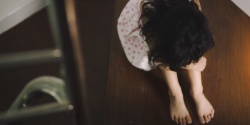Published: 29.07.2019

The European Court of Human Rights in Strasbourg has received 16 complaints against the Norwegian government from parents. They raise the violation of the parents' right to respect for family life. All of them pertain to the actions of the same institution – Norway's child protection agency, Barnevernet.
The parents have criticised Barnevernet, arguing that the officials have taken their children for no adequate reasons, banning the parents completely from keeping in touch with their children or radically restricting their right to do so. Some of the aggrieved are parents whose contact with the child has been limited to three four-hour meetings a year, a mother who has been allowed to contact her son for only two hours six times a year, a father granted just a single three-hour meeting a year with his own children, and a mother completely banned from contacting two of her children and for whom the right to see her third child has been restricted.
The Norwegian government can now respond to the allegations and non-governmental organisations have been asked to submit their legal opinions of amicus curiae as regards the legal issues related to individual complaints. The Ordo Iuris Institute is going to apply to the President of Section II of the ECHR, which is going to examine the complaints, for permission to take part in the 16 proceedings and to present its observations. The Institute lawyers are going to submit the arguments proving the utmost importance of a parent-child relationship for the proper child development to the Court, as well as present the international case law pointing out that taking children away from their parents is the last resort and ought to be applied in the most extreme cases only.
“The cases to be examined give us a lot of hope for reforming the Norway's childcare system, which assumes the total supremacy of the state over families. The situations described are an example of the application of measures that are totally inadequate to the circumstances the children and their parents find themselves in. In the recent ruling of the Strasbourg Court regarding Blondina Jansen's case, it was clearly stated that placing the child in alternative care serves the purpose of reuniting the family, so the relationship between the child and their biological parents should be maintained. Such a stance gives us the reason to assume that the verdicts in these 16 cases will be in favour of the complainants as well”, Bartosz Zalewski from the Ordo Iuris Institute remarked.
The reasons for which Barnevernet separates children from their parents are often petty, by way of illustration a mother's “chronic fatigue”, a three-year-old's low attendance at nursery school, and a parent's supposed paracetamol overuse. The Romanian-Norwegian Bodnariu family case is one of the most media-covered cases demonstrating extreme anti-family practices of the agency, where five children were taken away (one of whom was barely a few weeks old) and placed in three different foster families. Eventually, Barnevernet bowed to the public and Romanian government pressure and returned the children to their parents, who left Norway shortly afterwards. Recently, the Bodnariu family has filed a complaint to the ECHR, and the Ordo Iuris Institute has also submitted its opinion regarding the case. The Institute's experts have also been developing a report describing Barnevernet's practices from the system perspective, in terms of international human rights standards. Beforehand, they also represented a Norwegian woman Silje Garmo in court, who was granted asylum in Poland. In the court's decision it was directly stated that the woman's fundamental rights had been violated in Norway.

14.05.2025
• In Nairobi, the 2nd Pan-African Conference on Family Values is taking place with the participation of representatives from Ordo Iuris.

12.05.2025
In a significant development for Poland’s conservative movement, the newly established Stańczyk Club in Warsaw hosted its first Coalition Meeting last Friday. This event marks the introduction of a model of center-right collaboration that has been influential in the United States since the early 1990s.

09.05.2025
• Representatives of the Ordo Iuris Institute will participate in the Pan-African Conference on Family Values, which will begin on May 12 in Nairobi, the capital of Kenya. Ordo Iuris is a partner of the event.

07.05.2025
• The European Court of Human Rights has upheld a complaint by a same-sex couple whose Polish registry office refused to register a marriage contracted in the United Kingdom. This is the fourth judgment in which the ECHR indicates that Poland has an obligation to ensure that same-sex couples can formalize their cohabitation.